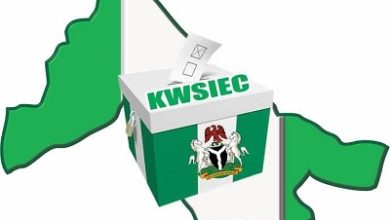Nigerian Passport: Planned price hike, needless

For the past decade or so, government agencies in search of how to increase fees that they administer come up with a certain cliché: “enhanced security features”. They did the same thing with vehicle number plates, driver’s license, and National Identity card, among others. This time, it is the turn of the Nigeria Immigration Service, (NIS). They too want to enhance the security features of our travelling passports. NIS has been going back and forth over re-designation of that document for awhile, this time, President Muhammadu Buhari launched a ten-year enhanced security passport designed to change the current pattern of the document and bring it in line with global best practices. According to Comptroller General NIS, Mohammed Babandede, the new passport, to be unveiled on March 4, 2019, will have over 20 enhanced features to make it easier for security management.
International passport is one of the most important documents any citizen can hold, giving them a sense of national pride and allowing them the freedom of international travel and also a means to prove their identity. Unfortunately, that document has become a target for fraudsters who try to create fake passports, or tamper with existing ones for criminal opportunities. The Nigerian passport as a travel document was first introduced into the country in 1948 after the Second World War and was then called the British West African Passport. The colour then was brown and was bulky with 63 pages. At Independence in 1960, Nigeria changed the colour to light green and reduced the pages to 32 with the Ministry of Foreign Affairs becoming the issuing authority.
Sometime in 1988, issuance of travel documents in Nigeria was transferred from the Foreign Affairs ministry to the Nigeria Immigration Service, NIS, thus bringing about major changes with the introduction of the Machine Readable Passport, MRP, which is a computer based passport. This presented a major shift from the hand written manual method. The introduction of the new 10-year validity passport is a welcome development as, among other things, it will go a long way in helping to reduce the stress many Nigerians face at renewing their passports at short intervals. Many Nigerians have had to forfeit renewing their passports because doing so can be quite cumbersome and have led many to lose the opportunity of engaging in international travels.
For the above, we call on the Federal Government to move several steps ahead of forgers and fakers who may want to abuse the new passport for criminal gain by ensuring that the security features to be so embedded are regularly updated. Secondly, the FG must device proper means to stop NIS officials from engaging in mindless rigging of the process that leads to obtaining the passport. The process is fraudulent, the hoarding is mindless all in a bid to make it scarce and create a black market ring. Officials of NIS then rip off fellow citizens without any check by either the supervising ministry (Ministry of the Interior) or the police and EFCC. With this cost price, we can only guess how much it will be obtained in the end. May be N100, 000!
Nigeria’s proposed 10-year validity passport should be such that can prevent the Personal Details Page from being removed or tampered with because the personal details page is a key target for passport fraudsters who seek to manipulate the information and holder’s image for criminal purposes. One continuous sheet of paper is used for the laminated details page, through to the page that is adjoined to the back cover. This construction is designed to cause irreparable damage if tampered with, which would become obvious to any person who may need to check the document. Also, a chip containing an electronic image of the passport holder is embedded into the document. This can be used to compare and verify that the printed images of the holder shown within the book are the same as on the chip.
Nonetheless, we however, call on government to review downward the cost of the proposed passport. According to Comptroller General, the 32-page passport will cost N25,000 in the country and 130 dollars abroad while the 64-page document for five years will cost N35,000 and 150 dollars abroad with the 64-page 10-year validity passport costing N70,000 and 230 dollars abroad. Every citizen reserves the right to own a passport and this right should never be denied on account of cost.





